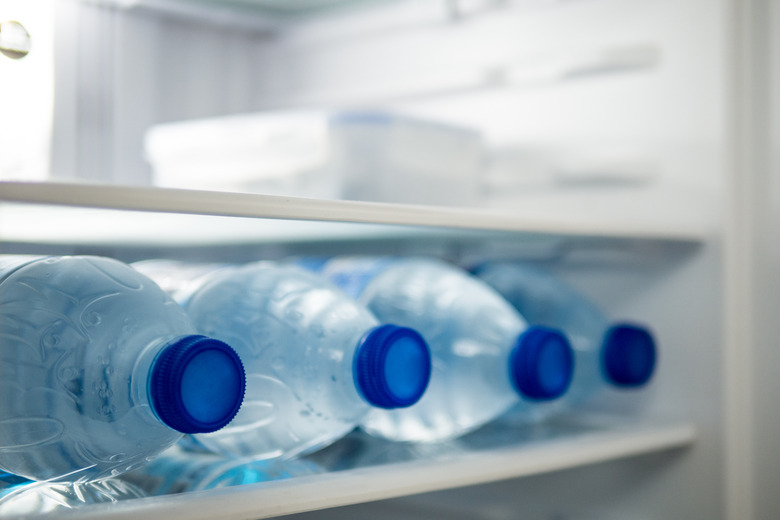How To Solve For Volume
In fields such as chemistry and aerodynamics, the relationship between pressure, temperature and volume is defined by the equation of state for an ideal gas. The equation states that the pressure in the gas is equal to the density times the temperature times the gas constant (p = rRT). In many cases, it is easier to measure pressure and temperature than volume or density. Therefore, solving this equation for volume is a common task for students of science and engineering.
Step 1
Write the equation of state and break density down to its components of mass and volume. Density is defined as mass divided by volume. p = (m/V)RT
Step 2
Multiply both sides of the equation by V. pV = mRT
Step 3
Divide both side of the equation by p. V = (mRT)/p
Step 4
Substitute the correct value for the gas constant based on the units you are using. Since density is being used in this equation, the specific gas constant is needed rather than the universal gas constant. The specific gas constant is different for each gas. For air, the value is 287 Joules per kilogram degree Kelvin–J / (kg*K)–or 1716 foot pounds per slug degree Rankine (ft * lb)/(slug * deg R). V = 287(mT/P)
Step 5
Measure mass, temperature and pressure. These can be measured using a variety of different methods depending on the conditions and the gas being measured. Enter those values into the equation to calculate a value for volume.
TL;DR (Too Long; Didn't Read)
p = pressure r = density R = specific gas constant T = temperature m = mass V = volume
References
- NASA Glen Research Center Eqution of State page
- Introduction to Flight, 3rd ed., John D. Anderson, Jr, 1989
Cite This Article
MLA
McKenzie, Grant D.. "How To Solve For Volume" sciencing.com, https://www.sciencing.com/solve-volume-5098947/. 17 June 2009.
APA
McKenzie, Grant D.. (2009, June 17). How To Solve For Volume. sciencing.com. Retrieved from https://www.sciencing.com/solve-volume-5098947/
Chicago
McKenzie, Grant D.. How To Solve For Volume last modified March 24, 2022. https://www.sciencing.com/solve-volume-5098947/
